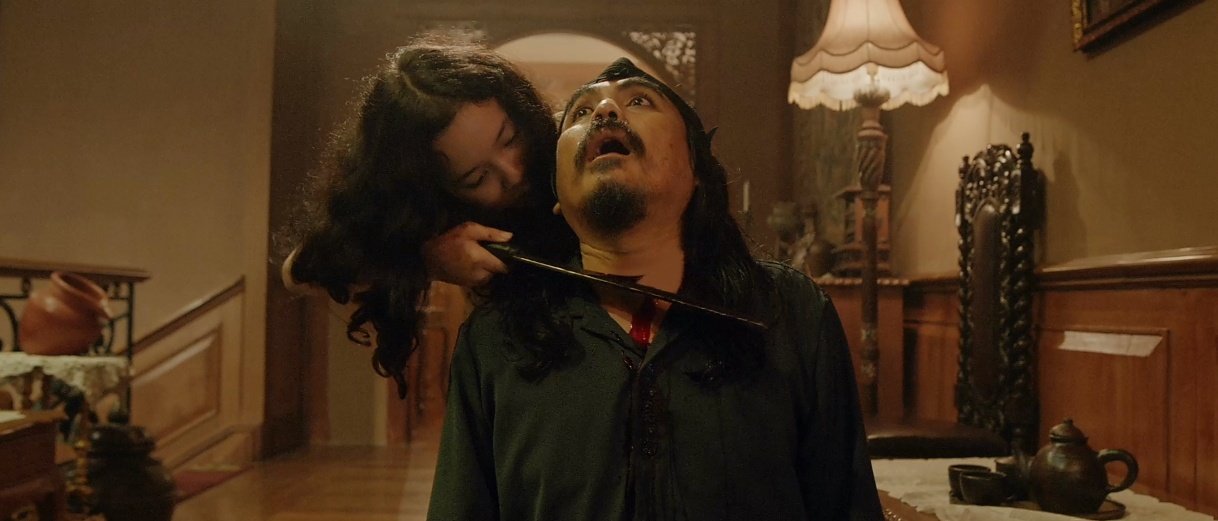She sought silence to find God, but what answered was far older—and hungrier
Sumala (2024) is a chilling Filipino psychological horror film that blends religious devotion, folklore, and internal dread into a slow-burning, atmospheric descent into spiritual madness. Set against the backdrop of the serene yet eerily quiet Mount Samat and the surrounding convent of Our Lady of Sumala, the film creates a haunting contrast between the sanctity of faith and the shadow of something unholy lingering beneath it.
The story centers on Teresa, a novice nun seeking refuge and redemption after a traumatic past. Drawn to the peaceful solitude of the convent, she hopes to escape the noise of the outside world—and the noise inside her own mind. But her new sanctuary begins to unravel as strange visions, ghostly apparitions, and inexplicable events plague her nights. A whisper in the hallway. A bleeding statue. A face in the shadows where there should be none. As Teresa searches for answers, she uncovers a suppressed history of the convent tied to pre-colonial rituals and a forgotten deity that demands worship in blood, not prayer.

Director Joseph Mangat crafts a deeply atmospheric tale, letting silence become as terrifying as any scream. There’s no rush to reveal the horror—instead, dread creeps in frame by frame, lurking in candlelight, echoed hymns, and the ancient stones of the convent. The film leans into its Filipino roots, weaving elements of indigenous myth and Catholic guilt into a narrative that feels both spiritually rich and deeply unnerving.
What elevates Sumala is its psychological intensity. It’s not just about ghosts or monsters—it’s about belief, repression, and the fragile line between holiness and hysteria. Is Teresa being haunted by a supernatural presence—or by her own sins? The film keeps that ambiguity simmering, inviting the audience into a meditative yet menacing space. The performances, especially from the lead, are restrained but powerful, expressing fear and faith in equal measure.
Cinematography and sound design do heavy lifting here, turning every creak of the wooden floorboards and every flicker of candlelight into a threat. Sumala doesn’t rely on cheap scares; it breathes with unease. As Teresa descends deeper into the mystery, so too does the audience—until the line between sacred and cursed completely dissolves.

For fans of atmospheric horror like The Nun, Saint Maud, or The Wailing, Sumala (2024) is a haunting, culturally rich exploration of faith turned inside out.


-1752571243-q80.webp)
